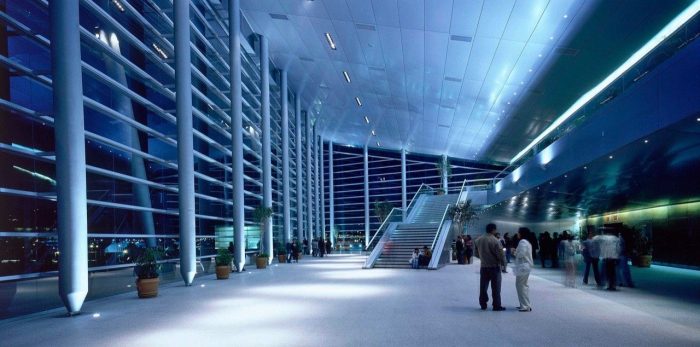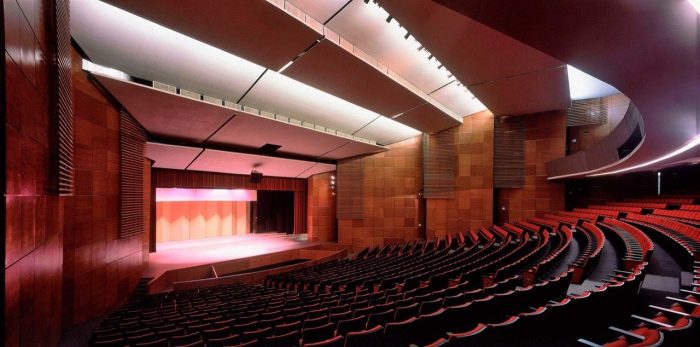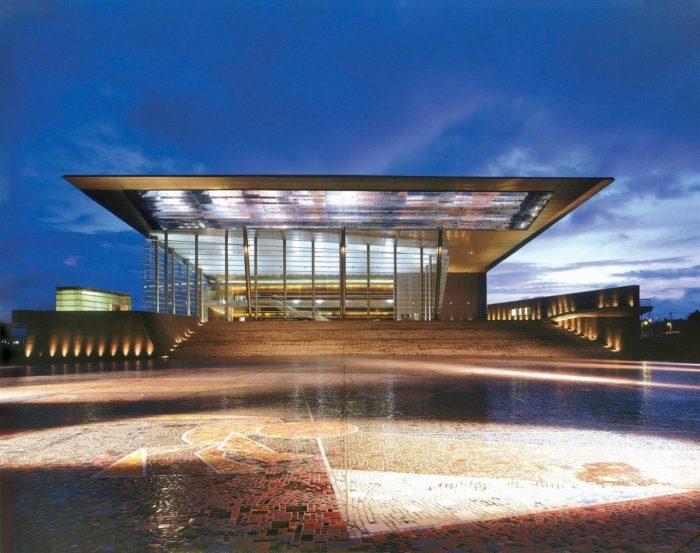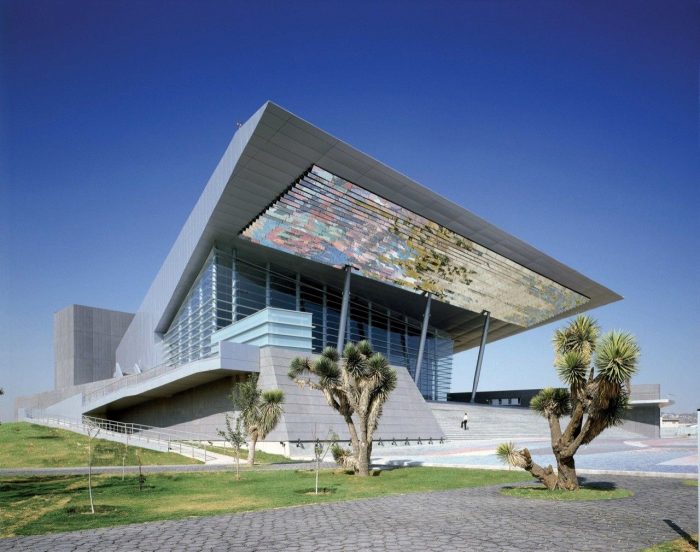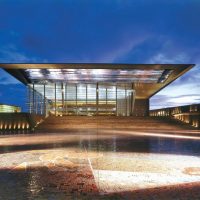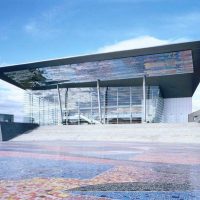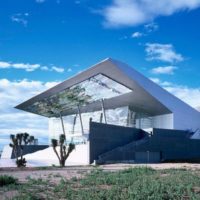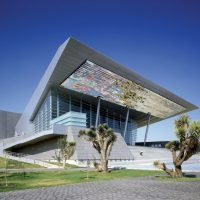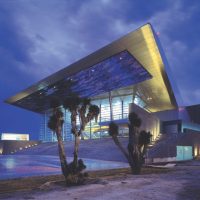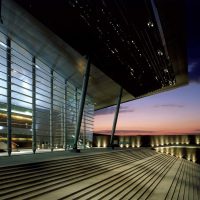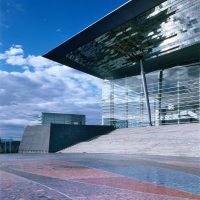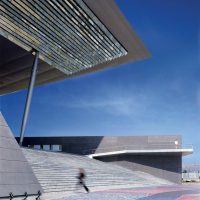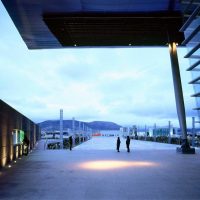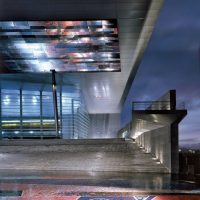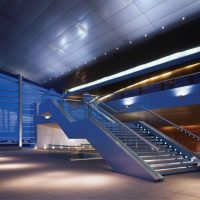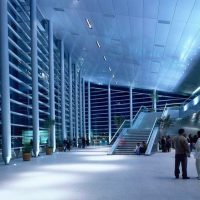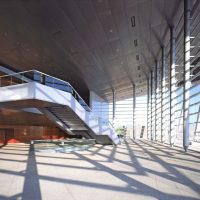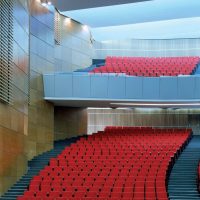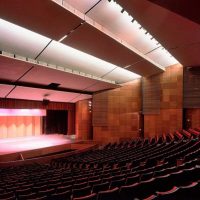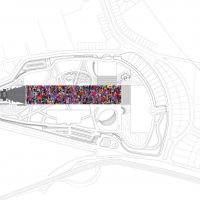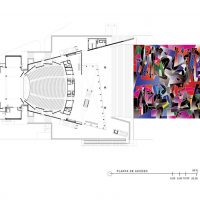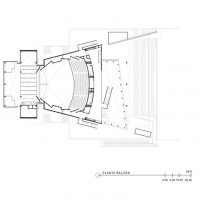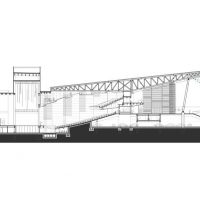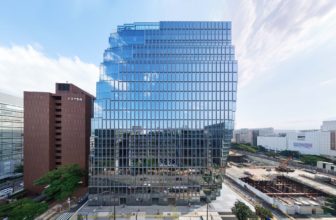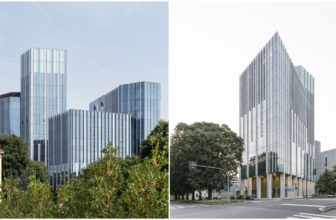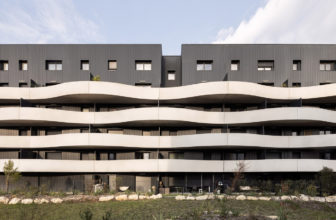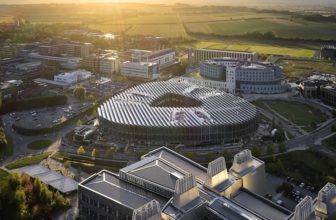In the city of Pachuca, Hidalgo, in Mexico, we generated a new urban development program consisting of various residential, commercial and service programs within a section of the city known as “Silver Zone” 1. Ejido societies, government agencies, and private developers partnered to make possible the realization of this Cultural and Service Complex.Within this project, arises the idea of generating a 25 hectare Cultural Park, called “Ben Gurion Cultural and Recreational Park”. This park has a large mural square, 80×100 meters, created by Hidalgo artist Byron Galvez, as a compositional axis. This square, made with small tile pieces, covers an area of 32000 square meters full of different colors. Around this square there are several spaces: Contemporary Art Museum, Audiorama, Sculpture Park, Central State Library, Convention Center, Museum of Science and Technology, 5 star hotel, and finishing the set, Gota de Plata Auditorium Theatre.
This park has a large mural square, 80×100 meters, created by Hidalgo artist Byron Galvez, as a compositional axis. This square, made with small tile pieces, covers an area of 32000 square meters full of different colors. Around this square there are several spaces: Contemporary Art Museum, Audiorama, Sculpture Park, Central State Library, Convention Center, Museum of Science and Technology, 5 star hotel, and finishing the set, Gota de Plata Auditorium Theatre.
The project for Gota de Plata Auditorium Theatre, designed by the architects Jaime Varon, Abraham Metta and Alex Metta from Migdal Arquitectos, is one of the main elements of this large ensemble; it is situated at the south end of the Culture Park and given its position within the complex, it acts as The Visual Culmination of this great “sea of colors”. Hence arises the idea of reflecting the mural square through a reflective glass roof, set 25 meters above the ground and with a 40 meter overhang on both ends. This building is set on a stone podium, where one of the main objectives is to be the first point to observe the mural. Its curtain, or background, is represented by a stone element that houses the stage and backstage.The envelope of the Auditorium Theatre is silver and black, in honor of the Silver Zone in the city of Pachuca, while inside, it is expressed in browns and intense reds representing the heart of the project, a living project, a remembrance of the great theaters of old.
This building is set on a stone podium, where one of the main objectives is to be the first point to observe the mural. Its curtain, or background, is represented by a stone element that houses the stage and backstage.The envelope of the Auditorium Theatre is silver and black, in honor of the Silver Zone in the city of Pachuca, while inside, it is expressed in browns and intense reds representing the heart of the project, a living project, a remembrance of the great theaters of old.
Stairways and ramps act as connectors to keep the flow of people constant. The Auditorium is entered from an exterior staircase that connects the square with the auditorium, and through a wide mouth that serves as the main entrance located at the side of the building, that ends in a large lobby or foyer which serves as a meeting place and as a space from which to see the great mural square. Thanks to the high transparency achieved in the foyer through large, fully transparent glass and slender silver studs, the space of the square becomes part of the auditorium itself, creating a visually continuous space. Likewise, the Auditorium Theatre has a balcony on the first floor and an exterior terrace, a stage with the adequate dimensions for any kind of show, backstage, dressing rooms, orchestra pit, balcony, parterre and parking lot. It also has the equipment required for the proper functioning of the Auditorium Theatre.
Likewise, the Auditorium Theatre has a balcony on the first floor and an exterior terrace, a stage with the adequate dimensions for any kind of show, backstage, dressing rooms, orchestra pit, balcony, parterre and parking lot. It also has the equipment required for the proper functioning of the Auditorium Theatre.
The construction of this Auditorium took place in 11 months. The construction system was mostly based on precast concrete and steel pieces that shortened the time required to complete the work. We used about 1500 tons of steel, among which were steel reinforcements more than 40 meters long in cantilever, in addition to various concrete precast elements such as columns, beams, stairs, slabs and walls. Detailed studies were conducted on adaptations and features required for the Auditorium Theatre. The acoustic architecture design was performed according to various studies that allowed the correct definition of angles and ceiling within the room, so that the voice of a person or the sound of a guitar up to a symphonic orchestra could be heard with perfect acoustics from any point or corner of the room. These studies were performed with a computer program called CATT – Acoustic V8-0a, at MIT in Boston.
Detailed studies were conducted on adaptations and features required for the Auditorium Theatre. The acoustic architecture design was performed according to various studies that allowed the correct definition of angles and ceiling within the room, so that the voice of a person or the sound of a guitar up to a symphonic orchestra could be heard with perfect acoustics from any point or corner of the room. These studies were performed with a computer program called CATT – Acoustic V8-0a, at MIT in Boston.
Given the north orientation of the Auditorium Theatre, it was possible to orient the reflective elements on the roof without causing any annoying sun glare for pedestrians or vehicles. The large roof reflects, and somehow reinterprets in ever changing form, the colors and textures of the mural square.
Architects : Migdal Arquitectos
Project Year : 2005
Project Location : Pachuca, Hgo., Mexico
Photography : Paul Czitrom, Werner Huthmacher
Site Management : ITISA – Impulsora Tlaxcalteca de industrias
Project Architects : Jaime Varon, Abraham Metta, Alex Metta / Migdal Arquitectos
Structures : ITISA – Impulsora Tlaxcalteca de Industrias, CTC – Ingenieros Civiles
Coordinación de Obra / Contractor Coordination : Coordinación de Obra / Contractor Coordination
Project Coordination : Gob. Del Estado de Hidalgo, Helia Carolina Soto, Dir. Gral. INVIDAH (Instituto de Vivienda, Desarrollo Urbano y Asentamientos Humanos)
- photography by © Paul Czitrom
- photography by © Werner Huthmacher
- photography by © Werner Huthmacher
- photography by © Paul Czitrom
- photography by © Paul Czitrom
- photography by © Paul Czitrom
- photography by © Werner Huthmacher
- photography by © Paul Czitrom
- photography by © Werner Huthmacher
- photography by © Paul Czitrom
- photography by © Paul Czitrom
- photography by © Werner Huthmacher
- photography by © Paul Czitrom
- photography by © Paul Czitrom
- photography by © Werner Huthmacher
- Site Plan
- Access Level Plan
- Balcony Level Plan
- Section


